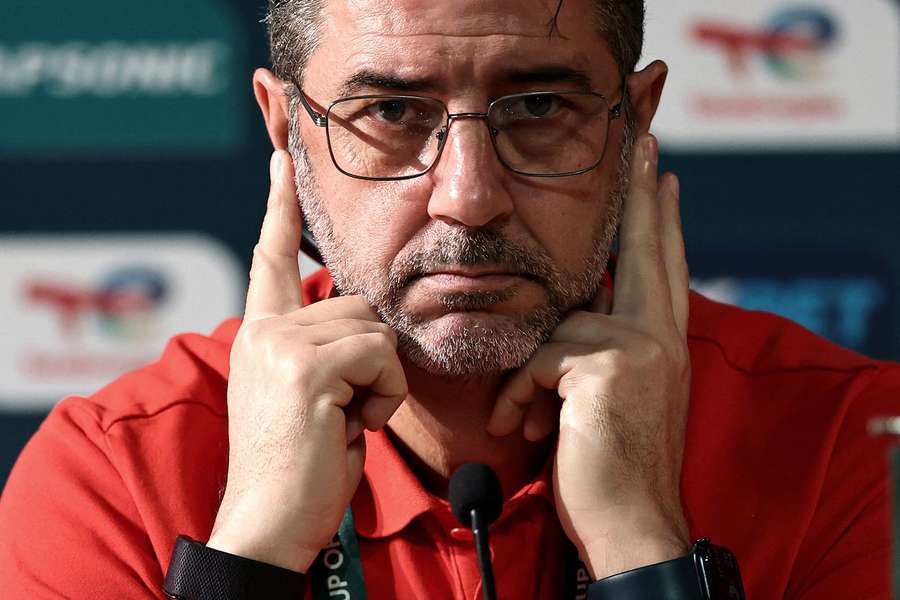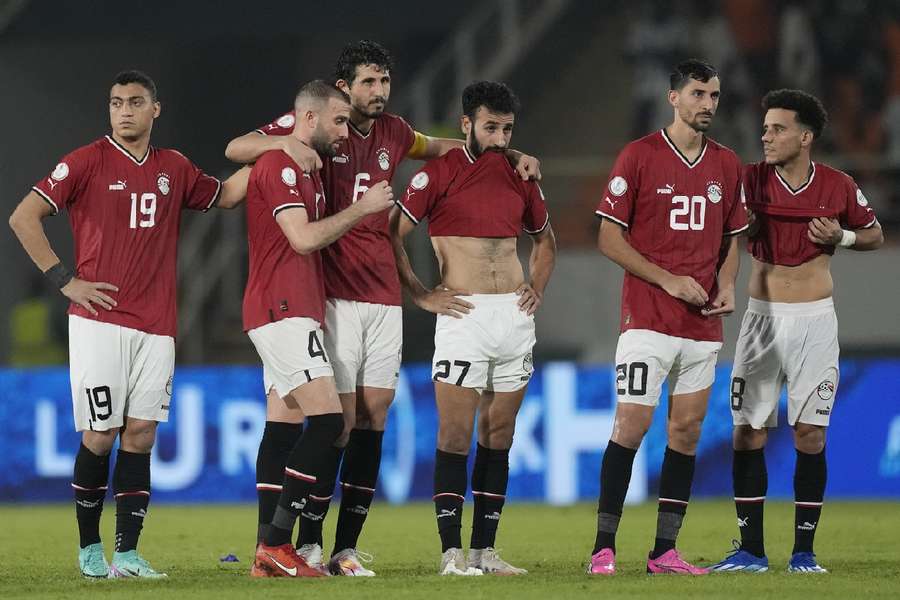EXCLUSIVE: Rui Vitoria on Egypt's AFCON exit, managing Salah & Portuguese football

Rui Carlos Pinho da Vitoria, born in Alverca, played for Alverca, Fanhoes, Vilafranquense, Seixal, Casa Pia and Alcochetense. He began his coaching career at Vilafranquense, followed by the youth team of Benfica, and then Fatima, Pacos Ferreira, Vitoria SC, Benfica, Al Nassr, Spartak Moscow and the Egypt national team.
He possesses three Portuguese league trophies, two Portuguese Cups, two Portuguese Super Cups, a League Cup, a Saudi Pro League title and a Saudi Arabian Super Cup. Quite the collection.
Has your career been worth all the sacrifices?
"For me, they're not sacrifices. Anyone who enjoys what they do doesn't see it as a profession. I've always been involved in sport since I was a kid. I studied Physical Education and I was a player and a coach.
"I could only see myself doing this. When you get to this point in your life and have accumulated all those years doing what you love, it's a source of great satisfaction and pride."
How was it managing Egypt?
"Looking back over the journey, there was this year's Africa Cup of Nations that was massive for a country that lives with a lot of emotions running high. When I first went there, it was a four-year job and I knew there would be two tournaments during that time. I would have thought that people would have a long-term vision.
"We achieved very positive results. We created very high expectations, we fuelled people's expectations a lot and a lot of people thought it would be Egypt's moment. I realised that it wasn't going to be an easy task because of what we were going to encounter in the competition and the context in which the Cup of Nations is played.

"I would have liked to have stayed on after our exit because I had a fantastic relationship with the players and we felt that things were working, but then we realised that it was better not to continue. After this Cup of Nations, I also felt that nothing should be forced and that it wouldn't be positive immediately after the tournament. It was a decision that was made and we have to move on."
Did you enjoy working with Mohamed Salah?
"It's a great pleasure, we had a very good relationship with interesting conversations, particularly about the national team and Egyptian football. I really enjoyed working with him, he's a star on and off the pitch, in a positive sense. Salah has a great ability to make decisions on the pitch and an appetite for goals that is almost unrivalled.
"He was very committed to the team and his teammates. A really great sense of teamwork. It's the opposite of what we imagined in these players, that they only think about themselves. It's not like that at all, we had to manage him in certain situations. He's a player who plays 70 games a season, every three days, so we had to think about what would be best for him.
"He's very humble and professional. Nothing fazes him because he's also disciplined. We had a slot for breakfast and at 9 am he was always there at the same time. Those habits and routines help players to prolong their careers and performance. I loved working with him."
How do you think Portugal have done under Roberto Martinez?
"It has to be recognised, in my opinion, that it started before with Fernando Santos. What has happened now (with Martinez) is a very good marriage between a team profile and a coach profile. The challenge now is to show that ability and quality at the European Championships.
"Now it's a case of things falling into place and I think we have the group of players and conditions to succeed and win another title. But it's also clear that Portugal are going to face different challenges at the European Championships than the national team has in recent games. That's where it's going to be a challenge for the whole structure, to show our quality against great opponents."
How important is the experience of Cristiano Ronaldo and Pepe?
"It's a good thing they're still competing because these types of players have a huge impact on the future of football. Young people have to look at them and realise that if you want to play an entire career at this level, you can only do so if you're a serious professional.
"I'm sure that with a superstar like Cristiano Ronaldo in the national team, the doctors, the physiotherapists, the catering people, all have to be at their peak performance. That makes all the difference. The presence of these players is fundamental in the clubs and in the national team."
Why did Joao Felix struggle at Atletico Madrid?
"Atletico Madrid is a team of enormous quality and the coach has done a great job, but they have a style of play that requires a specific player profile. Joao started with me and I recognised him for having very efficient decision-making, in the sense that if he had to pass to a player and score, he would pass as quickly as possible and score, he didn't waste any time at all.
"If there was a ball in the air, he didn't emphasise anything, it was as simple as possible. He has a great ability to make decisions in the final third, but if you keep him away from the penalty area, it's going to be more difficult, because he's not a transition player. He needs a team that works the ball to arrive at certain moments so that in defined spaces around the area, his quality can come to the fore.
"That's what happened when he went to Barcelona, a team that builds its game well, puts a group of players in the final third and Joao is one of those players. If he's too far away from the area, he'll have more trouble. Atletico are a great team and Joao is a great player but from my perspective, it was a marriage that shouldn't have happened."
What do you make of Bruno Fernandes at Manchester United?
"What I would emphasise, and we can add Bernardo Silva and Ruben Dias to this, is the mentality that these players have. The ability to be prepared for the highest level, where they often have to fight off frustration and circumvent failure.
"Bruno Fernandes is now captain, but he's been a leader for a while. The same goes for Ruben Dias. After just a short period they were team captains. This is a clear signal that we, Portuguese football, prepare players very well in all areas, especially their mentality. We're preparing 'competition animals'."
Is there a long-term project next for you?
"When I left Egpyt in the weeks that followed, I received a number of contacts, offers and possibilities that I found surprising. Firstly, because being in a national team opened up the national team market, and then, as I made my way through the national team, clubs recognised my quality.
"I love football, I watch it all the time, but I'm not obsessed with going to training. So now it's a case of going to a club that wants me. So far, I haven't felt that. We'll see what happens at the start of next season. One thing is clear: I won't go to any club just for the sake of going. I have to have that project.
"A project is an idea with a beginning, middle and end. In today's football, teams are so committed to the way they play that you can't be so dependent on immediacy.
"With that vision, Klopp probably wouldn't have made it past his first or second year (at Liverpool). Then came the titles. Arsenal are also becoming more and more powerful. You have to spend time choosing a coach. It's not just the CV, it's choosing the right coach and then giving them time, resources and belief in what they're doing."



